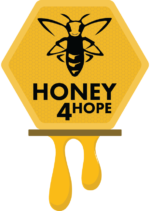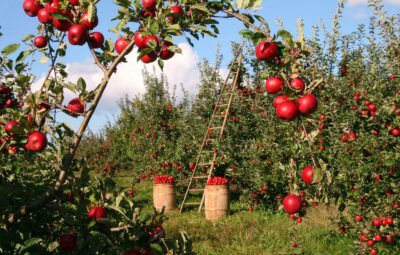In the early spring, it’s a great time to get your fruit! Everything begins to come back in season, and if you are like me, fruit is one of your favorite things to eat! Apples, cherries, peaches, berries, and so much more are a Pacific Northwest specialty! In addition to tasting great, fruit trees play a crucial role in supporting bee populations and promoting pollination, which is essential for the production of fruits. When selecting fruit trees for bee pollination, it’s important to consider factors beyond your favorite fruit and consider things such as bloom time, flower structure, and nectar/pollen production to attract and sustain bee populations. Here are several fruit trees known for their bee-friendly qualities:
- Apple Trees (Malus spp.): Apple trees are popular choices for bee pollination due to their abundant blossoms. Different varieties bloom at various times throughout the spring, providing a steady source of nectar and pollen for bees. Some popular cultivars include Honeycrisp, Gala, and Granny Smith.
- Cherry Trees (Prunus spp.): Cherries are another favorite among bees, especially sour cherry varieties like Montmorency and Balaton. These trees typically bloom early in the spring, providing bees with an early-season food source when other flowers may be scarce.
- Peach Trees (Prunus persica): Peach trees produce fragrant blossoms that attract bees during their blooming period. Varieties such as Redhaven and Elberta are commonly grown for their delicious fruit and bee-friendly flowers.
- Pear Trees (Pyrus spp.): Pear trees are valued by bees for their abundant nectar and pollen. Varieties like Bartlett and Anjou are popular choices for orchards and home gardens, providing bees with food during their blooming period.
- Plum Trees (Prunus spp.): Plum trees, including both European and Japanese varieties, offer bees a rich source of nectar and pollen. Santa Rosa and Methley are examples of Japanese plum cultivars known for attracting bees.
- Apricot Trees (Prunus armeniaca): Apricot trees produce beautiful pink and white blossoms that bees find irresistible. Varieties such as Moorpark and Goldcot are favored by both gardeners and beekeepers for their pollinator-friendly qualities.
- Blueberry Bushes (Vaccinium spp.): While not technically trees, blueberry bushes are excellent choices for supporting bee populations. Blueberry flowers provide bees with abundant nectar and pollen, and varieties like Bluecrop and Jersey are known for their high yields and attractiveness to bees.
When planting fruit trees for bee pollination, it’s beneficial to have a wide variety of pollination sources! By selecting bee-friendly fruit trees, gardeners can help promote healthy bee populations while ensuring abundant fruit harvests. The extra bonus from fruit trees is you can make pies, juices, desserts, or give away your excess fruits! Fruit trees are the way to go.




